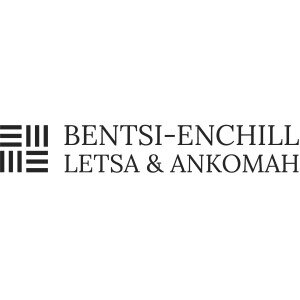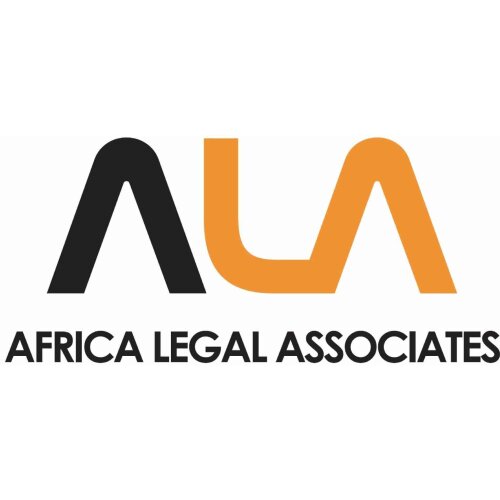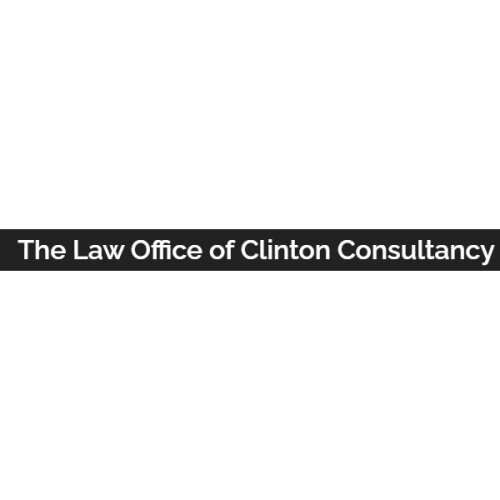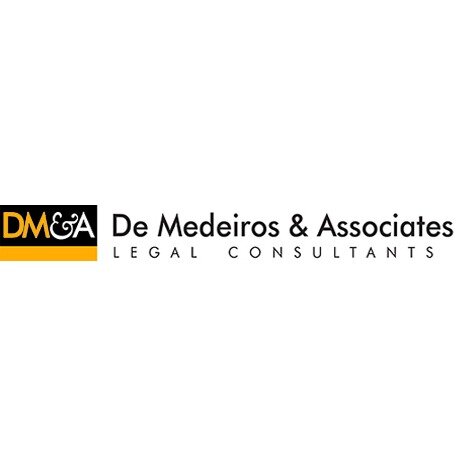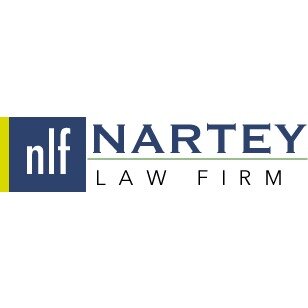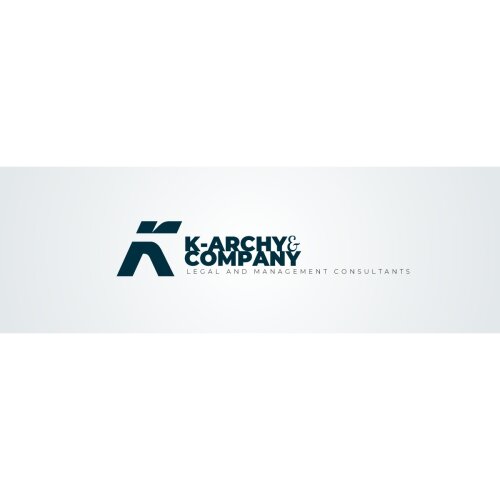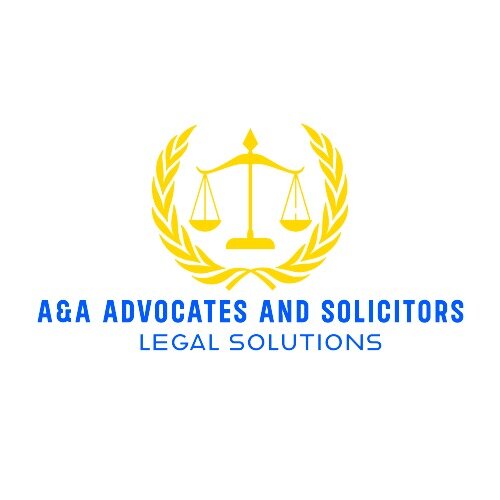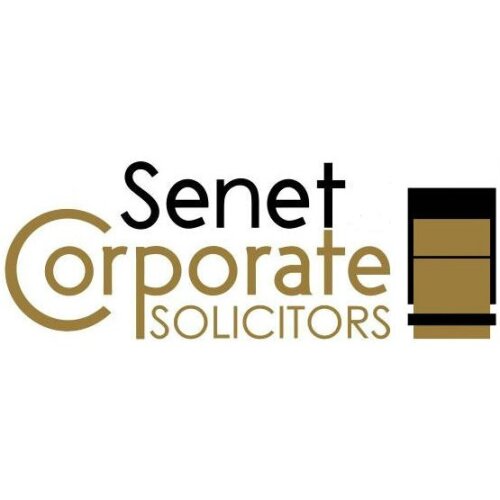Best Commercial Real Estate Lawyers in Accra
Share your needs with us, get contacted by law firms.
Free. Takes 2 min.
Free Guide to Hiring a Real Estate Lawyer
List of the best lawyers in Accra, Ghana
About Commercial Real Estate Law in Accra, Ghana
Commercial real estate law in Accra, Ghana, governs the various aspects of property transactions and management that are primarily used for business purposes. This includes, but is not limited to, the buying, selling, leasing, and development of properties such as offices, retail spaces, warehouses, and industrial sites. Given Accra's status as the capital city, it is a hub for commercial activities, making it an attractive location for investors and businesses alike. The commercial real estate market in Accra is vibrant, but navigating the legal landscape requires an understanding of the local property laws, land tenure systems, and the regulatory requirements that impact businesses.
Why You May Need a Lawyer
Common situations in which people may seek legal help in commercial real estate include drafting and reviewing purchase agreements, lease negotiations, due diligence on property acquisitions, zoning and land use issues, as well as dispute resolution pertaining to property matters. A lawyer can provide invaluable assistance with title searches, registration of property, understanding of taxation implications, and compliance with local building regulations. Additionally, navigating the complexities of the legal framework surrounding commercial properties in Accra can be challenging, making the expertise of a lawyer crucial in avoiding potential legal pitfalls.
Local Laws Overview
Key aspects of local laws relevant to commercial real estate in Accra include the Land Title Registration Law, PNDCL 152, which provides for registration of land to establish a legal title. The Rent Act, 1963 (Act 220), governs tenancies, prescribing the rights and responsibilities of landlords and tenants. The Local Government Act, 2016 (Act 936) also impacts zoning, land use, and building permits, which are essential for any commercial property development. Investments in commercial real estate typically must adhere to the regulations set forth by the Ghana Investment Promotion Centre Act, 2013 (Act 865) and be mindful of the Stamp Duty Act, which requires payment of stamp duties on property transactions. Understanding these laws is critical for anyone involved in commercial real estate transactions in Accra.
Frequently Asked Questions
What constitutes commercial real estate in Accra, Ghana?
Commercial real estate includes properties used for business activities such as offices, retail shops, hotels, warehouses, and industrial buildings.
How secure is land tenure for commercial properties in Accra?
Land tenure can be secure if proper due diligence is done and land title registration procedures are correctly followed. Working with a knowledgeable lawyer can help ensure tenure security.
What taxes are associated with commercial real estate transactions?
Taxes may include stamp duties on transfer documents, capital gains tax on the sale of property, and property rates for ownership of commercial real estate.
Do I need a permit to develop a commercial property in Accra?
Yes, you'll need to obtain building permits and comply with local planning and zoning regulations before commencing development.
What should I look for in a commercial real estate lease agreement?
A comprehensive lease agreement should stipulate terms regarding rent, lease duration, tenant and landlord obligations, renewal options, and termination clauses.
How do I register a property in Accra?
Property registration involves conducting a title search, obtaining a land title certificate, and going through the formalities at the Lands Commission.
Can foreign nationals own commercial property in Accra?
Foreign nationals can own commercial property on a leasehold basis, typically for terms of 50 years for non-citizens, but they cannot own land outright.
What dispute resolution mechanisms are available for commercial real estate disputes?
Dispute resolution can be managed through negotiation, arbitration, or litigation in the national courts.
Is there a difference between freehold and leasehold in terms of commercial property?
Yes, freehold interest grants outright ownership forever, while leasehold involves leasing the land from the freeholder for a specified period.
How can I ensure my investment is protected when investing in commercial real estate?
Protect your investment by conducting thorough due diligence, securing appropriate insurance, and involving a qualified real estate lawyer in all transactions.
Additional Resources
Resources that can be helpful for those seeking legal advice in commercial real estate include the Ghana Lands Commission for property registrations and land inquiries, the Ghana Investment Promotion Centre for investment guidelines, and the Ghana Real Estate Developers Association (GREDA) which can serve as a helpful industry body. Additionally, the Bank of Ghana provides information on financial provisions, and the Judicial Service of Ghana can assist in understanding the legal proceedings related to real estate.
Next Steps
If you require legal assistance in commercial real estate, the first step is to consult with a lawyer who specializes in property law and has experience in commercial transactions within Accra. They can guide you through the necessary legal processes, provide representation, and give comprehensive advice tailored to your specific situation. Ensure to gather all pertinent documents related to your property or intended transaction before your consultation for an efficient and effective legal process.
Lawzana helps you find the best lawyers and law firms in Accra through a curated and pre-screened list of qualified legal professionals. Our platform offers rankings and detailed profiles of attorneys and law firms, allowing you to compare based on practice areas, including Commercial Real Estate, experience, and client feedback.
Each profile includes a description of the firm's areas of practice, client reviews, team members and partners, year of establishment, spoken languages, office locations, contact information, social media presence, and any published articles or resources. Most firms on our platform speak English and are experienced in both local and international legal matters.
Get a quote from top-rated law firms in Accra, Ghana — quickly, securely, and without unnecessary hassle.
Disclaimer:
The information provided on this page is for general informational purposes only and does not constitute legal advice. While we strive to ensure the accuracy and relevance of the content, legal information may change over time, and interpretations of the law can vary. You should always consult with a qualified legal professional for advice specific to your situation.
We disclaim all liability for actions taken or not taken based on the content of this page. If you believe any information is incorrect or outdated, please contact us, and we will review and update it where appropriate.



